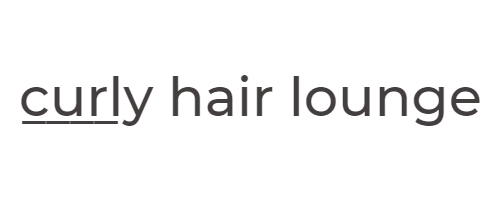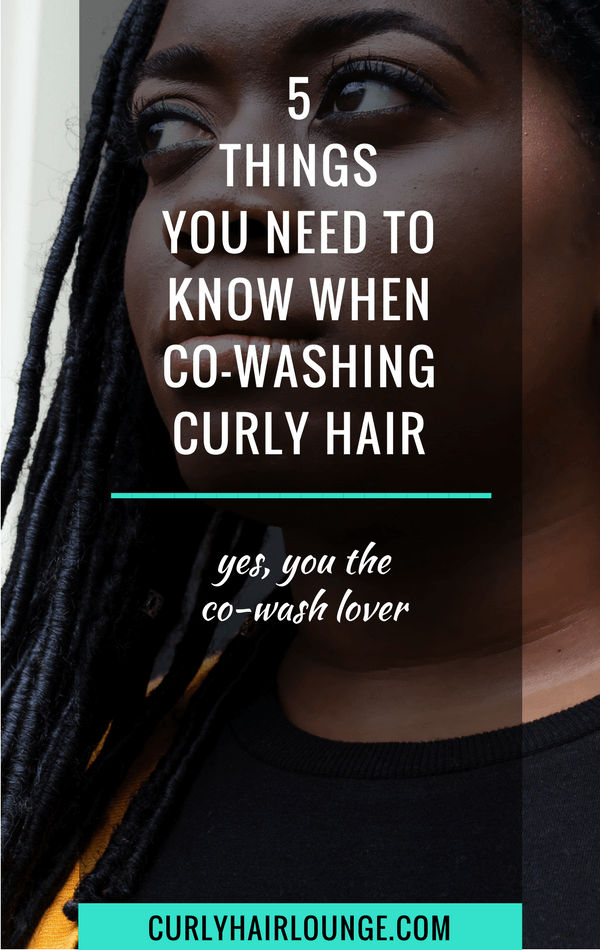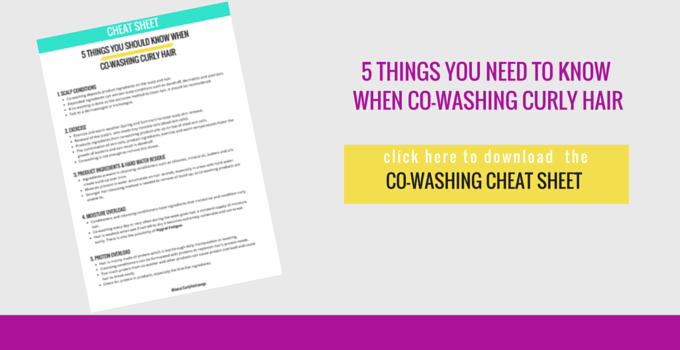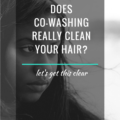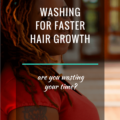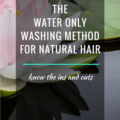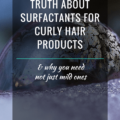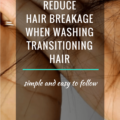Cleansing conditioners are lifesavers for all those who love to wash their hair regularly or need to do it because of exercise or work. How great is it to be able to keep your hair clean and fresh and not strip your hair of its natural protection -sebum? I’m a big supporter of a mid-week co-wash to rehydrate my curls and refresh my hairstyle, especially when the weather gets warmer. However, there are a few things you need to consider when co-washing your curly hair.
Among the natural hair community, the knowledge that regular hair conditioners and, subsequently, cleansing conditioners could be used to clean our curly hair and still keep it moisturised was certainly received with great enthusiasm. I mean, who’s not up for better-conditioned hair, more manageability, less breakage, more shine and less frizz? Count me in sister! Finally, a simple, good, and effortless chance at getting beautiful healthy hair (well, if you actually don’t consider the Water Only Washing Method which is crazy scary of how simple it is).
But, like most things in life, you need to know what you could potentially be getting into, how can you best use this technique and if it’s a good fit for and your hair? Wanna know how effective co-washing natural hair is? Read this blog post where I discuss it. In the meantime, let’s have a look at the things you need to know before you co-wash your curly hair.
Oh, but first, before I forget I have something for you! I made this little cheat sheet with all the main points of what I’m about to talk in this post. You only need to click the button below and grab it, it free.
1| SCALP CONDITIONS
Yes, before going out on a buying frenzy for the best cleansing conditioner for your curly hair, first you should consider your scalp conditions. Despite all the benefits you can reap when incorporating co-washing into your hair routine if you have dandruff, dermatitis, psoriasis or any other condition on your scalp, you need to think twice if this is going to be your sole method of cleaning your hair.
Conditioners are formulated to condition your hair after a shampoo treatment. They have ingredients that are deposited on your hair to nourish, soften, help detangle and fight frizz. The same thing happens with your co-wash product. Although they are rinsed out, if, for instance, you suffer from psoriasis the ingredients deposited on your hair can worsen your condition. Talk to your dermatologist/trichologist about this and consider only co-washing as an occasional option.
2| EXERCISE & WARM WEATHER
I don’t know about you, but when I exercise I sweat. A lot! I actually like when this happens because, to me, it means I’m getting paid for all huffing and puffing. There’s no point in working out if you’re not giving it your best, right!?
Has this happens my hair and scalp also get sweaty especially during Spring and Summer. What does this have to do with co-washing? Well, as you know our skin renews its cells every three weeks or so, and the same thing happens with our scalp.
When you exercise and when the weather is warmer our skin renews more often. What this means is that tiny invisible cells shed (dead skin cells) from our scalp. These cells can accumulate and become visible when the ingredients in your cleansing conditioner pile up on top of them. The combination of dead skin cells, product ingredients, exercise and warm weather temperatures (Spring and Summer) can help develop bacteria and consequently dandruff. Co-washing does not seem to be enough to remove this threat. Itchy already?
3| PRODUCT INGREDIENTS & HARD WATER RESIDUE
Cleansing conditioners are a great no-poo option because they can give your hair a break from the drying effects of shampoos. However, with all the products available to care and style for your hair, many of them have ingredients that accumulate and buildup on your hair up such as silicones, mineral oil and even natural butters and vegetable oils.
Additionally, the water you use to wash your hair can also impact on its health. If you live in an area that has hard water this means it has a high mineral content that sits on your hair and is difficult to remove even with a regular shampoo.
If you notice your hair is not “acting” like its normal self with the same regular products, or that it’s limp and dull you most probably have build-up from all these different elements. What you need to do is to clarify your hair. Clarifying is actually something I never did to my hair before I started transitioning. Well, if I did, it’s because I accidentally bought a clarifying shampoo without ever knowing. However, it’s something we should all do to our hair.
Clarifying is needed because it removes buildup from product ingredients and hard water minerals. If a cleansing conditioner is the only product you to clean your hair you need to reconsider that, as a stronger cleanser is needed. Failure to do this will prevent your hair from being properly moisturised and nourished, eventually causing dryness and breakage if left for too long.
4| MOISTURE OVERLOAD
Did you fall madly in love with co-washing and like doing often during the week? Feels good, doesn’t it? But, you may be overloading your hair with moisture. Conditioners, or cleansing conditioners, are supposed to help moisturise and condition our hair, but if you do it every day or often enough your hair could be feeling fragile.
Although moisture is essential to our hair we also need to remember that our hair is weakest when it’s wet, therefore, if you co-wash so frequently as to never let your hair dry, your hair could be very weak and break. This excessive moisture can also cause hygral fatigue, which changes your curl pattern, read more about it here.
For a simple co-washing cheat sheet just click the image below and it will give you access to it. Really, it’s all yours and it’s free too!
5| PROTEINS
Our hair is mainly composed of protein, and we need to replenish it as it can lose protein simply from washing or manipulating it. One way you can do this is by having a diverse and balanced diet or, by using hair products that contain proteins to help strengthen your hair.
Nowadays, any hair product can have proteins and co-washing products for curly hair are no different. However, if you’re already including proteins in your hair care routine through your deep conditioner and/or other products you could be loading your hair with too much protein, especially if these proteins appear as one of the first five ingredients.
If this is the case, you could experience serious breakage as too much protein leaves your hair dry, brittle, and completely vulnerable to breakage.
As you can see, there are a few things you need to know when co-washing curly hair, especially if you consider using this as an exclusive cleansing method for your hair. I have talked about how effective co-washing is in a previous post, and these two posts are not meant to discourage anyone from doing it. Not at all, I do it too! It’s easy, quick, does wonders for my hair and I love it.
What I want from you is for you to do your homework before you embark on the next best hair technique or method. There are always pros and cons, and you need to weight those in with your specific situation, not take blindly what the “majority” is doing. I managed to avoid growing pains in this journey by doing my homework and researching before acting on new information.
As an example, I avoided green dyed hair with henna (read about proper henna) and unwanted results from using baking soda, as it doesn’t work the same for all (read more about it here). Get it now, why you need to do your research? Alternatively, you can always touch base here, and have access to the free Resource Library, created so you can have a stress-free journey (subscribe below!). Have you downloaded your free cheat sheet, yet?!
